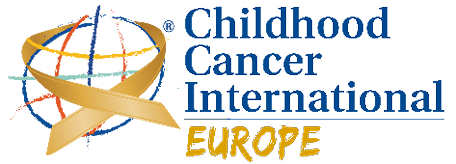Perceptions of physicians caring for paediatric patients with cancer in Europe: insights into the use of palliative care, its timing, and barriers to early integration
The paper was originally published in the Frontiers in Oncology Journal on October 23, 2024.
The SIOPE Palliative Care Working Group, together with CCI Europe and St. Jude, published an article examining how doctors across Europe view palliative care and the challenges they face in putting it into practice. The lay summary below provides a comprehensive overview of the main findings.
According to the World Health Organisation (WHO), palliative care should be offered to childhood cancer patients and their families as early as from diagnosis, as it helps manage pain and improve quality of life, not just at the end of life but throughout treatment. This study explored the views of doctors across Europe who care for children with cancer, focusing on what they know about palliative care, how they use it and what obstacles they encounter.
What Did the Study Do?
The researchers adapted a global survey for paediatric oncologists working in Europe and gathered responses from 198 physicians across 29 countries, which they analysed individually and by region.
Key Findings:
- General Understanding: Most doctors (83%) agreed with WHO guidelines on palliative care. They recognized its benefits, such as improving pain management and emotional well-being.
- Comfort Levels: Many doctors felt confident in handling physical symptoms (84%) and emotional support (63%), but fewer felt comfortable addressing spiritual needs (42%) or providing grief support to families (48%).
- Timing of introduction of Palliative Care: 34% of doctors believed palliative care should ideally start at diagnosis, but in reality, only 5% reported this happening in their setting. Instead, most doctors (70%) said palliative care is only introduced when no curative options remain, even though many felt it should come much earlier.
- Barriers to Early Palliative Care: The biggest challenges were doctors’ discomfort in discussing palliative care (82%), perceived family resistance (72%), lack of knowledge (71%) and desire to maintain hope (71%). Other obstacles included uncertainty about a child’s prognosis, limited access to opioids and cost.
- Regional Differences: Doctors in Eastern and Southern Europe reported more difficulties, including fewer palliative care specialists, lack of home-based services, and limited access to pain-relieving opioids.
Conclusion
Doctors who care for children with cancer in Europe seem to have a good understanding of palliative care.
However, there are still misconceptions and doctors find it difficult to attend to families’ spiritual needs, and support them through grief and bereavement. Moreover, in some regions there are additional service barriers, such as lack of specialists, access to opioids and home-based services.
To be able to effectively implement paediatric palliative care, we need more education, training and access to specialised services. This study highlights the need to address these issues so that children with cancer in Europe can receive palliative care when they need it most, regardless of where they live.

